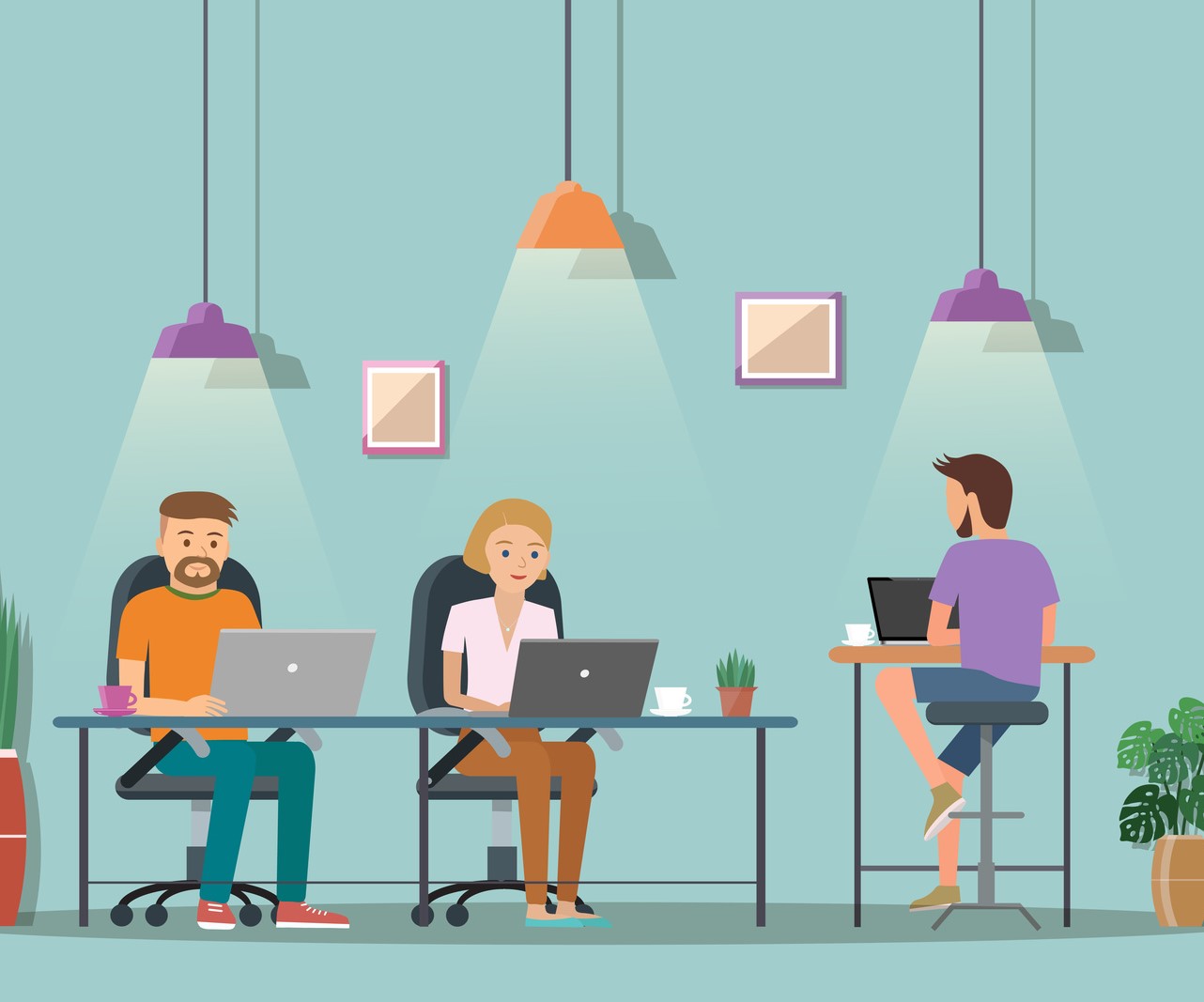Five reasons why coworking spaces should be accessible and inclusive spaces
November 24, 2019

They are now as ubiquitous as the corner Starbucks and if you’re like me, you are a tenant of one — the collaborative/co-working space. Referred to as hubs, hotbeds, incubators, launchers, accelerators of innovation; there are now over 5,000 coworking spaces across the US cities, universities and suburbs. Coworking spaces serve as equalizers in today’s workforce, allowing entrepreneurs more than just access to an office space, wifi, meeting rooms, etc. They provide a unique ecosystem where tenants, surrounded by like-minded peers, can be more creative/innovative, find new business opportunities, build relationships and learn. In other words, co-working spaces as ‘equalizers’ promote access and inclusion – leveling the playing the playing field a bit for the small business, startups or the solopreneur. So, for the creators, managers and directors of coworking spaces — there is a huge opportunity in addressing the needs of persons with disabilities.
In the US alone, there are close to 50 million people living with a physical or cognitive disability. that’s circa 800 million worldwide. Now, in my case, being legally blind, there are 20-30 million Americans who are visually impaired. The leading causes of vision impairments in the US are diseases like diabetes, glaucoma and age-related macular degeneration- which are affective adults even in their 40’s. In other words, in their prime ‘working years’. These are staggering numbers for a disenfranchised population that is socially, politically and economically excluded. There is still a high unemployment rate of 67% within the blind and visually impaired community (that includes people with low vision like myself). Yet a very high percentage of us are ‘able’ to work or are seeking skills training and are now better positioned to pursue careers as entrepreneurs, consultants or operate a small business. As I ‘see’ it, collaborative/coworking spaces are ‘equalizers’ for people with disabilities, and have the unique opportunity to act as accessible hubs that promote engagement, innovation, relationships and learning. Here are five reason to insure to insure coworking spaces are
- A hub for skills and job training – Even though we are facing a staggering high unemployment rate, people with disabilities are capable of working or re-training, learning new skills and re-enter the workforce. Given their unique ecosystem, collaborative/coworking spaces are best suited to be centers for skills training. Most of the programs and community activities are already providing learning opportunities for their current tenants. Programs can include activities that promote technical skills, problem-solving, teamwork, and critical thinking – all important skills in our innovation economy. My personal experience is that people with disabilities are excellent problem-solvers, adaptable and always finding creative ways to work around their physical condition.
- As centers of design & innovative solutions – Because of the variety of technical challenges we face daily, people with disabilities are excellent problem-solvers, adaptable and always finding creative ways to work around their physical condition. We’re best suited to provide design ideas, feedback and solutions that are not only beneficial to person with disabilities, but to all users- hence inclusive/universal product design. However, people with disabilities are rarely consulted or included in the design and development of products, technology solutions and services. Again, the unique ecosystem within the coworking space provides a ‘safe place for everyone’ for designers, product developers, engineers to engage with the disabled community, therefore providing a variety training and work opportunities for this community.
- Spaces for social interaction – We all crave human contact, and the importance of the smart design and application of the physical space is central to creating an environment for face-to-face collaboration. People with disabilities are prone to social isolation, which in turn may lead to substance abuse and depression. This is a major health risk, and when surveyed, the number one need in their life is social interaction. Coworking spaces can help build relationships around common interests and goals and foster a sense of community and belonging.
- As bridges for engagement – As more business, non-profit, social organizations and governments are seeking to engage with the disabled community, the coworking space have the opportunity to bridge this gap. Coworking and collaborative spaces can be a ‘common ground’ for public officials and ‘marginalized’ citizens to participate or consult in planning, design, advocacy and governance.
- Because it’s the law – because of the unique arrangement and the more casual work environment, most entrepreneurs and companies at coworking spaces may not be aware or even prepared to deal with the employment law risks that may arise within these settings. A big area of concern is an employer’s need to protect themselves and their employees from harassment by others in the coworking space. Chief among these are sexual harassment, misconduct, discrimination, overtime laws and disability discrimination. The American’s with Disability Act or ADA still applies within the co-working environment and managers and directors of these spaces are required to provide reasonable accommodations for their disabled tenants.
So, at the end of the day, it’s about applying and using the product you sell. If coworking spaces are the ‘equalizers’ whose mission is to provide a unique environment for innovation — then coworking spaces should be a place of social and professional equity for everyone. I encourage that both the directors and tenants with different abilities meet at the table because the barriers to innovation, creativity and solution-making are exponentially lower, and we need to be thinking and ready to make things happen for people with all abilities around the world.
